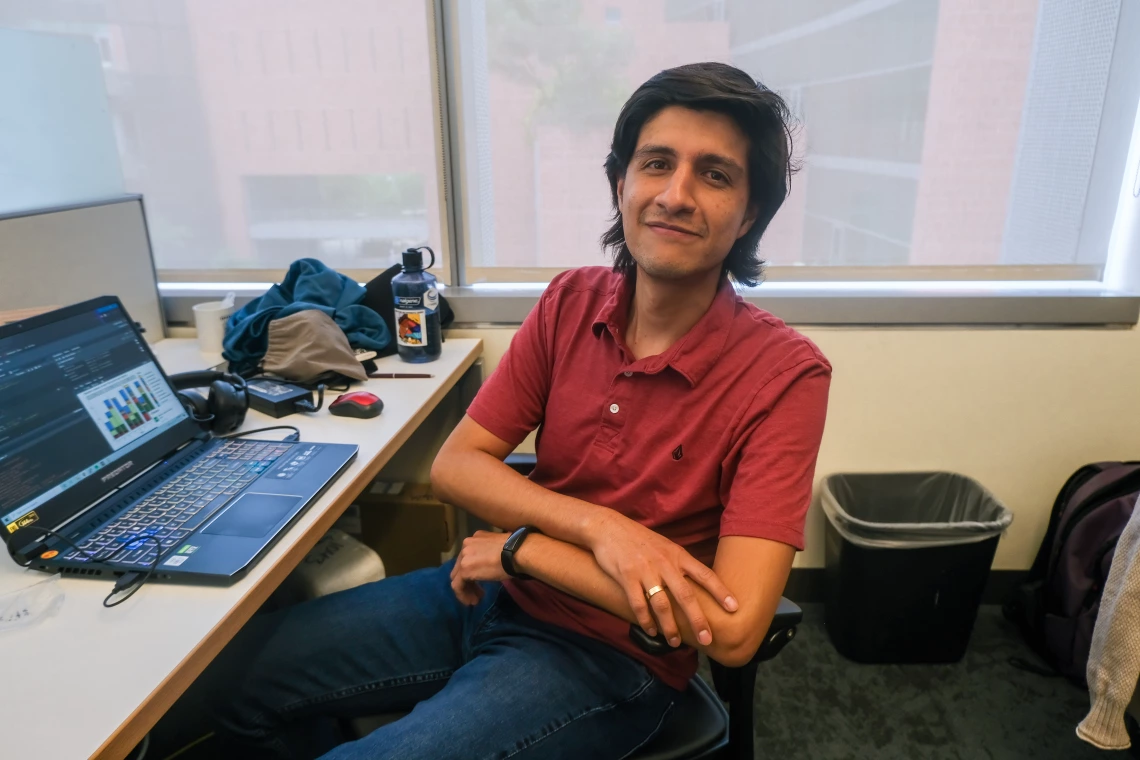ENVS graduate student named CALES Data Science Ambassador
Christian Ayala-Ortiz's research experience will be used to assist other CALES researchers with any data science challenges

Christian Ayala-Ortiz conducts research and assists other researchers in Malak Tfaily's lab.
The analysis of data is just as integral to the scientific process as the experiments that generate it. When problems with data science arise, researchers in the College of Agriculture and Life Sciences (CALES) have a valuable resource in the Data Science Ambassador (DSA) program.
Every year graduate students with an aptitude for using data science in their field of research are nominated by their units to become DSAs. After receiving training, they help members of their college by holding one-on-one consultations, hosting group workshops, and providing referrals to additional resources.
DSA Director Jeff Oliver helped found the program because he realized that graduate students could bridge gaps in research communication by integrating their knowledge of data science with the language of their respective fields.
“The graduate student population who started using data science approaches have their feet in both worlds — in their own domain, as well as in the data science area,” Oliver said. “They are better able to communicate with other researchers in their field.”
This year the CALES DSA is Christian Ayala-Ortiz, a graduate student in the Department of Environmental Science and researcher in Malak Tfaily’s lab.
Through studying meta-omics, he gained expertise with the coding languages R and Python, and can help with high-performance computing, making a project open-source, and building apps and pipelines.
Tfaily, an Environmental Science professor, emphasized the importance of Ayala’s expertise in creating accessible software and enhancing the transfer of knowledge between scientists.
“In contemporary times, research heavily relies on extensive datasets and there is a growing emphasis on transparent and reproducible data processing,” Tfaily said. “Our ability to effectively navigate and manipulate data is fundamental to addressing complex scientific questions.”
Ayala is passionate about helping others build their data science skills, which he said can be learned through individual meetings and group workshops.
“If you learn how to do some programming, you will ensure that all of your analyses are going to be reproducible and easily shared with other scientists,” Ayala-Ortiz said. “Just email me directly and then we can figure out meeting times or the best way that I can help.”
If you are interested in learning more about the DSA program or would like assistance with data science, contact Christian Ayala-Ortiz at cayalaortiz@arizona.edu.
